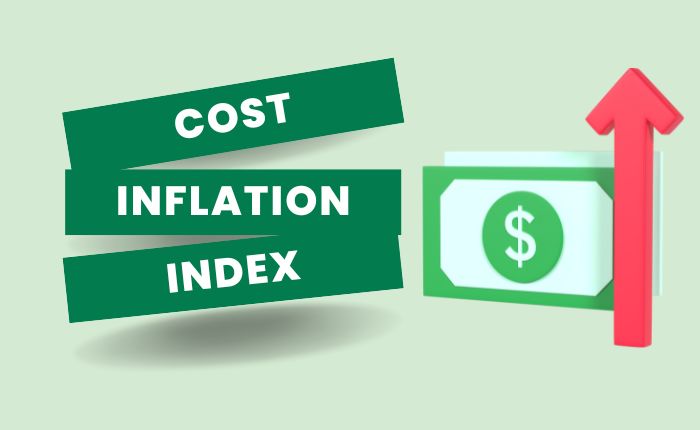Cost inflation index is a tool used in India to account for inflationary effects on asset costs. It reflects changes in prices of goods and services over time. The government releases the CII annually to help taxpayers adjust the purchase price of their assets for inflation when calculating their tax liability. By using the CII, taxpayers can reduce their capital gains tax liability when selling assets by adjusting the purchase price to reflect inflation that has occurred over the years. Overall, the CII is a useful tool for taxpayers to account for inflation and reduce their tax liability on capital gains.
CII For Financial Year 2023-2024 released by CBDT
The Central Board of Direct Taxes (CBDT) has announced the Cost Inflation Index (CII) for the financial year 2023-24. The CII number for this year is 348 and it will be used to calculate the capital gains on the sale of long-term assets during this financial year. The CII number helps adjust the cost of the asset for inflation, which helps in determining the actual profit or gain made on selling the asset. Once the capital gains are calculated, the income tax payable on those gains is determined. When filing your income tax return (ITR) for the assessment year 2024-25, you will need to use this CII number. The CII number for the previous year (FY 2022-23) was 331.
How is the CII utilised in a person’s income tax calculation?
- The cost inflation index is a number that accounts for inflation when calculating the profit made from selling an asset. This number is used to calculate long-term capital gains when selling a house, land, or building.
- Previously, until March 31, 2023, the CII number was also used to calculate long-term capital gains from non-equity mutual fund schemes.
- However, from the current financial year (starting April 1, 2023), the CII number can no longer be used for non-equity mutual funds.
- It can only be used to calculate long-term capital gains from selling a house property, land, or building.
 Procedure for determining purchase price adjusted for inflation
To determine the inflation-adjusted price of a long-term asset, the CII number is used. This is done by dividing the CII number of the year of sale by the CII number of the year of purchase, and then multiplying the result with the actual price of the asset.
For instance, if you purchased a property for Rs 25 lakh in 2002-03 and sold it in the current financial year with a CII number of 348, the inflation-adjusted price of the house would be Rs 82.85 lakh [(348/105)*25 lakh]. If you sell the house above this price, you will have long-term capital gains. If the selling price is below this price, then it will be a long-term capital loss. The type of capital gain depends on the holding period of the asset, which varies for different types of assets.
How is the CII calculated & how is it utilised to account for inflation in asset purchase prices? What role does the base year play in this process?
- The base year refers to the first year of the cost inflation index, which is assigned an index value of 100. The index values of subsequent years are compared to the base year to calculate the percentage increase in inflation.
- For assets bought before the base year, the purchase price is considered as either the actual cost or the Fair Market Value (FMV) on the 1st day of the base year, whichever is higher.
- To adjust for inflation, the purchase price is then subjected to indexation benefit. A registered valuer determines the FMV through a valuation report.
Why is a Cost Inflation Index necessary?
The purpose of the Cost Inflation Index is to adjust prices for inflation, which means that if the inflation rate increases over time, prices also increase. The Cost Inflation Index is used to factor in this rise in prices due to inflation.
Who or what entity presents the Cost Inflation Index?
The government releases the official Cost Inflation Index through publication in the official gazette. The index is determined using 75% of the average increase in the Consumer Price Index (urban) during the preceding year. The Consumer Price Index is a metric that tracks the change in the cost of a set of goods and services over a period of time.
Several important factors for CII
- When inheriting a property through a will, the Cost Inflation Index of the year in which you received the property should be used instead of the year in which it was purchased.
- If any improvement costs were incurred before April 1, 2001, they will not be eligible for indexation benefit.
- Bonds and debentures do not qualify for indexation benefit, except for capital indexation bonds or sovereign gold bonds issued by the RBI.
- Taxpayers can use the purchase price of an asset as the higher of the actual cost or the Fair Market Value (FMV) as of the 1st day of the base year.










